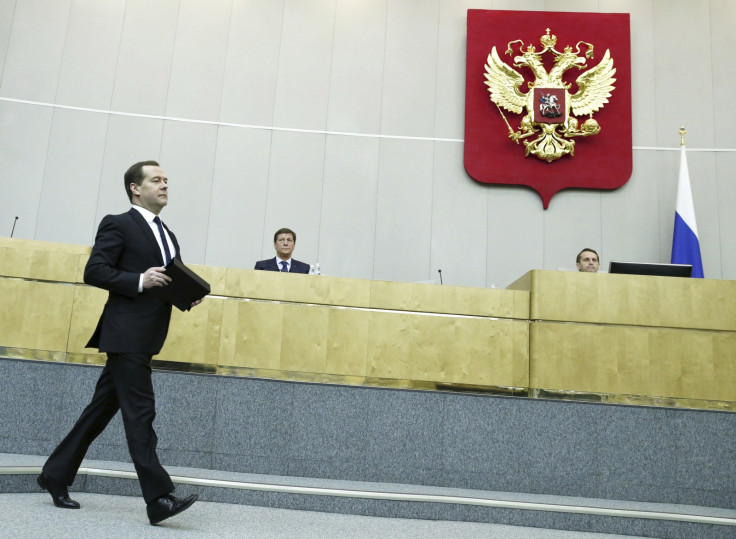Russia PM Dmitry Medvedev says Crimea annexation like German reunification

Russia's Prime Minister Dmitry Medvedev compared last year's annexation of Crimea to the reunification of Germany in 1989.'/'
Speaking in the Russian Parliament, Medvedev told lawmakers that the "historic" step was justified.
"For many the return of Crimea was the restoration of historic justice, which in its significance is equivalent to the fall of the Berlin Wall, the reunification of Germany or the return to China of Hong Kong and Macao," he said.
Russia annexed the Black Sea peninsula of Crimea from Ukraine in March 2014, after months of protests across Ukraine forced the pro-Russian former president Viktor Yanukovych to flee the country.
Russia had agreed a long-term lease for a naval base on the peninsular but acted unilaterally to annex the whole peninsula when Yanukovych left Kiev.
The European Union in return passed sanctions against Russia.
Russian economy shrinks 2%
Medvedev said Russia's economy had contracted by 2% in the first three months of the year, citing the impact of sanctions and the weak oil price.
Medvedev said the situation had not yet reached the lows of 2009 and had already showed signs of stabilising, but that Russia faced "a new reality".
Moscow was facing economic pressure that had already hit income from exports by €25bn (£18bn, $26.7bn,) Medvedev said, adding that the figure could yet increase further in 2015.
Russia's economy has been hampered by the dramatic collapse in oil prices at the end of last year, which halved in a six-month period and have remained relatively weak.
US Crude oil (WTI) was trading around $56 a barrel on Tuesday afternoon in London (21 April), while Brent crude was trading at $63 a barrel, well down on the $115 a barrel price of June 2014.
Energy exports accounted for around two thirds of Russia's total export earnings in 2013.
© Copyright IBTimes 2025. All rights reserved.






















